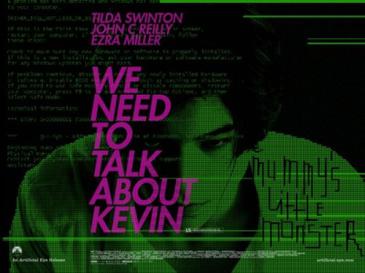 The first third of Lynne Ramsay’s “We Need to Talk about Kevin” grabs you by the neck and does not let go. Through the use of disjointed storytelling and unique, ambiguous visuals, the film’s opening perfectly achieves a sense of unfathomable disorientation, luring you into its distressing story. The film follows Eva—a fantastic Tilda Swinton—after her life falls apart. Through a series of flashbacks we learn that her teenage son Kevin has murdered his father, sister, and nine high school students. Eva is thus forced to live in a society that hates and blames her, haunted by her own maternal demons.
The first third of Lynne Ramsay’s “We Need to Talk about Kevin” grabs you by the neck and does not let go. Through the use of disjointed storytelling and unique, ambiguous visuals, the film’s opening perfectly achieves a sense of unfathomable disorientation, luring you into its distressing story. The film follows Eva—a fantastic Tilda Swinton—after her life falls apart. Through a series of flashbacks we learn that her teenage son Kevin has murdered his father, sister, and nine high school students. Eva is thus forced to live in a society that hates and blames her, haunted by her own maternal demons.Like the book it is based on, the film is bound to leave you thinking about the origin of violence and the nature of mother-son relationships. Unfortunately, its tone falters in the middle, as it eschews its disjointed storytelling, adopting a more traditional structure intertwining Eva’s life before and after the traumatic event in a linear fashion. At times it also feels like the film overdoes its successes. Artistically, it overuses some of its visual motifs, making a nuanced film appear too obvious. In its narrative, the middle of the film, probably emulating the novel’s epistolary structure, often feels like a series of vignettes about Kevin’s evil actions growing up, failing to uphold the first third’s cohesiveness. The film’s ending, however, recaptures the opening’s tension and features one of the most terrifying and beautiful conclusions of any film this year.
Recommended (B+)
No comments:
Post a Comment